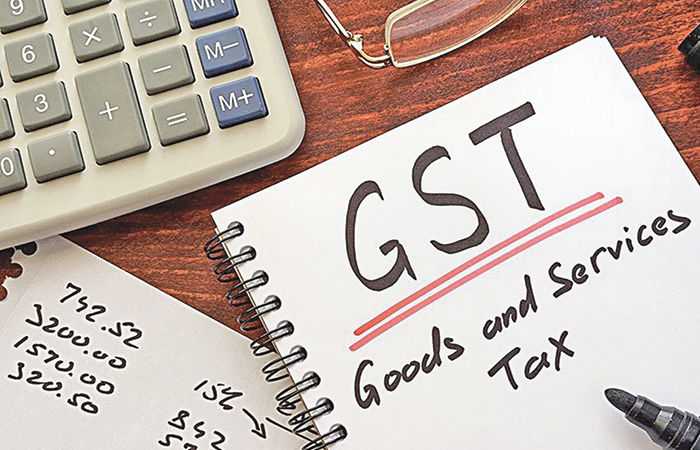
Ahmedabad: After the formation of the BJP-led NDA government for the third consecutive time in the Lok Sabha elections, the first meeting of the GST Council was held on Saturday, in which many important decisions were taken. In the GST Council meeting chaired by Union Finance Minister Nirmala Sitharaman, it has been recommended to take biometrics of those taking GST number to prevent fake billing and illegal input tax credit in goods and services tax.
Biometrics will take biometrics including fingerprints, identification marks around the eyeballs, hand size. This decision of the government will curb those who take illegal input tax credit through fake billing. Cases of taking input tax credit worth thousands of crores by making fake bills are happening across the country including Gujarat. That is why it has been made mandatory for those applying for new GST registration to provide Aadhaar card and take biometrics of the person taking registration.
In the 53rd meeting of the GST Council, it has also been decided to waive interest and penalty on the demand amount shown in the demand notice issued under section 73 of the GST Act. However, interest and penalty will not be paid to fraudsters, those who hide GST amount or deliberately misrepresent GST income. Interest and penalty will be waived for those who deposit tax by March 31, 2025 as per the full demand of GST for the period 2017-18 to 2019-20.
In the first meeting of the GST Council after the formation of the new government at the Centre, a limit of Rs 200 crore was announced to reduce the number of GST dispute cases and speed up the settlement of cases. The limit of Rs 1 crore to be paid against a demand of Rs 30 lakh has now been reduced to Rs 20 lakh. The limit of Rs 1 crore to take the case to the High Court has been increased to Rs 1 crore, Finance Minister Nirmala Sitharaman announced.
It has been recommended to amend the CGST Act to fix a time limit of three months for filing appeals in the GST Appellate Tribunal. The government will notify the date for the same. The GST Council has recommended not to charge interest on the demand amount in cases of delay in filing returns under section 50 of the CGST Act. The last date for filing any new anti-profiteering application has been fixed as April 1, 2025.
GST will be levied at a uniform rate of 12% on all types of milk sold in steel, iron or paper cans. Standard sizes of milk cans will be fixed. It will also become clear in the coming days which milk packaging will not be subject to GST. The GST Council has recommended not to levy compensation cess from those units or developers in special economic zones who have started their operations from July 1, 2017. It has been recommended to levy GST at the rate of only 12% on solar cookers or scripcolors.
The GST Council has recommended that the law be amended retrospectively to extend the time limit for availing input tax credit on invoices or debit notes filed on November 30, 2021 under section 16(4) of the GST Act from 2017 to 2021. Input tax credit will be given on the basis of GSTR 3-B filed for the years 2017-18 to 2031 as deemed to be filed on November 30, 2021.
The central government is ready to bring petrol and diesel under the ambit of GST
States should decide on including petrol and diesel in GST: Finance Minister
New Delhi: After the first meeting of the GST Council on Saturday after the formation of the Modi government, Union Finance Minister Nirmala Sitharaman has left the decision to include petrol and diesel under GST to the states. She said that the central government is ready to bring petrol and diesel under the GST system.
Finance Minister Nirmala Sitharaman held a press conference after the 53rd meeting of the GST Council. During this, when journalists asked about including petrol and diesel in the GST system, Sitharaman said that the central government is always ready to bring petrol and diesel under the ambit of GST. Now the states have to decide how much tax should be imposed on petrol and diesel. Late Finance Minister Arun Jaitley was ready to bring petrol and diesel under GST. Now the states have to decide about its rates.
When GST was first implemented on July 1, 2017, crude oil, natural gas, petrol, diesel and aviation turbine fuel (ATF) were included in the GST law. However, the decision on tax collection under GST was confirmed to be taken later.
Railway facilities including platform tickets exempted from GST
It has been decided not to levy GST on railway platform tickets. The GST Council has also decided to exempt some services related to supply within the railways from GST, it has recommended exemption in housing services to students or working professionals. This will benefit students and working professionals. Goods and Services Tax will be levied at the rate of 12 percent on boxes made of corrugated paper for packing. This will benefit those who pack and send eggs to Himachal Pradesh and Jammu and Kashmir. At the same time, it has been recommended to reduce the Goods and Services Tax on chemical fertilizers to less than 5 percent. At present, there is no problem with GST at the Gujcomsol or District Union level. But at the Taluka Union and Primary Agricultural Committee level, chartered accountants have to pay more for fulfilling all the duties from filing GST returns. Therefore, this problem has increased even more. As a result, GST on chemical fertilizers is likely to be zero.
 look news india
look news india
